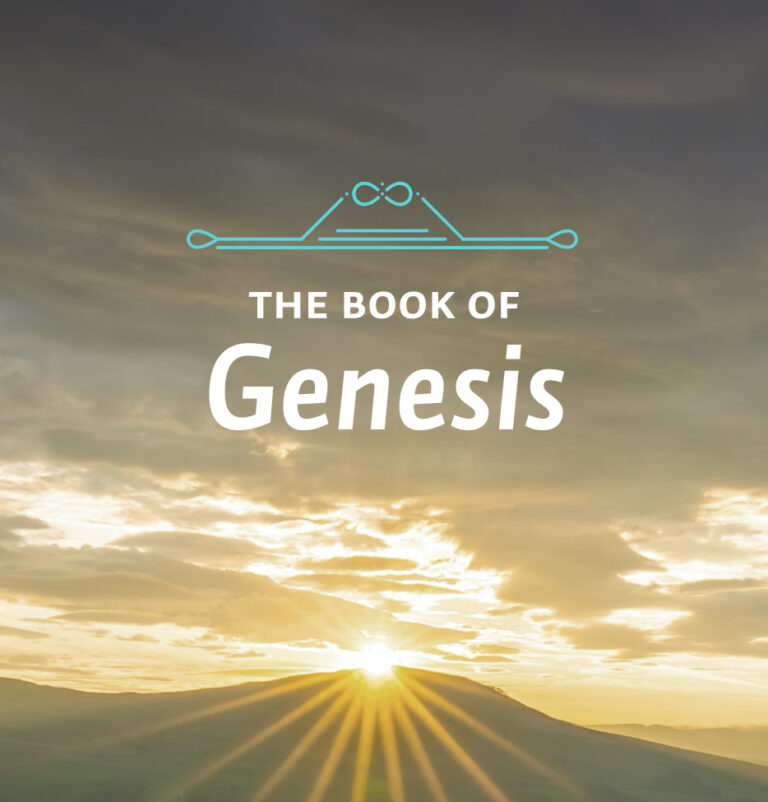
Christmas in Eden — Part One
Christmas in EdenGenesis 3:4-6, 13-15, 20Theme: God gives the promise.This week’s lessons teach us that God’s plans cannot be thwarted.
Lesson

Christmas in EdenGenesis 3:4-6, 13-15, 20Theme: God gives the promise.This week’s lessons teach us that God’s plans cannot be thwarted.
Lesson

Christmas in EdenGenesis 3:4-6, 13-15, 20Theme: God gives the promise.This week’s lessons teach us that God’s plans cannot be thwarted.
Lesson

Christmas in EdenGenesis 3:4-6, 13-15, 20Theme: God gives the promise.This week’s lessons teach us that God’s plans cannot be thwarted.
Lesson

Christmas in EdenGenesis 3:4-6, 13-15, 20Theme: God gives the promise.This week’s lessons teach us that God’s plans cannot be thwarted.
Lesson

Christmas in EdenGenesis 3:4-6, 13-15, 20Theme: God gives the promise.This week’s lessons teach us that God’s plans cannot be thwarted.
Lesson
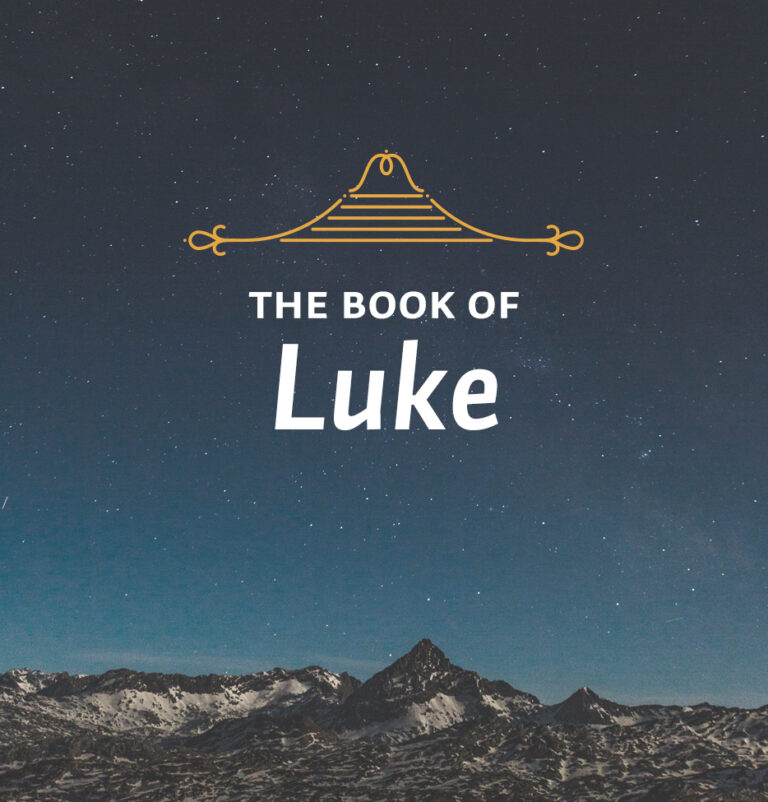
The second miracle of Christmas announced to Mary by the angel Gabriel is the Virgin Birth. Strangely, this miracle was not a problem for the ancients. At least no strong opposition to its being possible has been recorded. It is only in recent times, in the earlier decades of this century, that the Virgin Birth has been discounted.

Theme: Belief in Gabriel’s Message
This week’s lessons help us to prepare to celebrate the birth of Christ by
focusing on three miracles seen in the angel Gabriel’s visit to Mary.
Scripture: Luke 1:26-38

Theme: “Be Born in Us Today”
This week’s lessons help us to prepare to celebrate the birth of Christ by
focusing on three miracles seen in the angel Gabriel’s visit to Mary.
Scripture: Luke 1:26-38

Theme: The King in a Manger
In these lessons on the birth of Christ we focus on its paradoxes, and how these show that Jesus’ coming is for all who will receive him.
Scripture: Luke 2
There are other paradoxes besides the two mentioned yesterday. The one that is most apparent to anyone is that the Lord of glory came in humble circumstances and was presented to us in His first moments upon earth in a manger.

Theme: The Most Important Birthday of All
In these lessons on the birth of Christ we focus on its paradoxes, and how these show that Jesus’ coming is for all who will receive him.
Scripture: Luke 2
Birthdays are usually very happy times. For that reason we generally try to remember the birthdays of close friends. We who have children cannot forget birthdays; the children will remind us.

Theme: No Room in the Inn
In these lessons on the birth of Christ we focus on its paradoxes, and how these show that Jesus’ coming is for all who will receive him.
Scripture: Luke 2
Another related paradox comes in at this point: When Joseph and Mary came to Bethlehem, there was no place for them to stay. As a matter of fact, there was no room even in the inn.

Theme: Angels and Shepherds
In these lessons on the birth of Christ we focus on its paradoxes, and how these show that Jesus’ coming is for all who will receive him.
Scripture: Luke 2
We talk about there being no room in the inn.

Theme: How to Celebrate Christmas
In these lessons on the birth of Christ we focus on its paradoxes, and how these show that Jesus’ coming is for all who will receive him.
Scripture: Luke 2
I notice something else at the end of the story. It is what I would call instructions on how to celebrate Christmas, the birth of Christ.
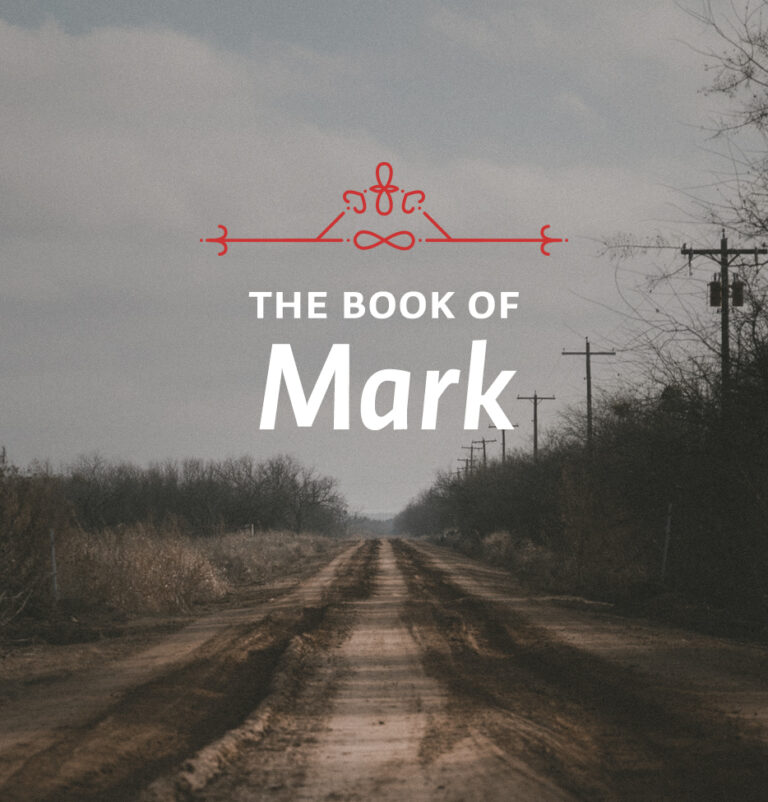
Over the next few days everybody will be making final preparations for Christmas, and it is not exactly something we look forward to. At least I don’t. I admire people who do it weeks or even months in advance, like people who have all their gifts purchased, wrapped, and even mailed by Thanksgiving.

This is why John the Baptist is so important. John was what we would call a charismatic character. He was a prophet in the tradition of the great Jewish prophet Elijah, and he lived in the desert like a “holy man” or monastic, wearing rough clothing made of camel’s hair and with a leather belt around his waist. He ate the food of the desert, locusts and wild honey (v. 6).

The first part of John’s message was sin and the need for forgiveness. The second part is the person of Jesus Christ. The first verse of the Gospel already has told us who he is. He is “the Son of God.” John tells what this means when he says, “After me will come one more powerful than I, the thongs of whose sandals I am not worthy to stoop down and untie” (v. 7).

Theme: Christmas Miracles
This week’s lessons help us to prepare to celebrate the birth of Christ by
focusing on three miracles seen in the angel Gabriel’s visit to Mary.
Scripture: Luke 1:26-38

The first two parts of John’s message are sin and the need for forgiveness, and the person of Jesus Christ. The third part is the work of Jesus Christ. The third and last part of John’s message points to the work Jesus was coming to do, and that was to achieve our salvation. In Mark this is summarized by the contrast between John’s preparatory work and the greater and more effective work to be done by Jesus. John says, “I baptize you with water, but he will baptize you with the Holy Spirit” (v. 8).

Theme: That God Should Become Man
This week’s lessons help us to prepare to celebrate the birth of Christ by
focusing on three miracles seen in the angel Gabriel’s visit to Mary.
Scripture: Luke 1:26-38

Thus far in this message I have been talking about the preparation by John the Baptist for the coming of Jesus Christ. I have made a few helpful applications along the way. But I am sure you know that the important thing right now is not how John the Baptist prepared people for Jesus’ coming or even what you can learn from that incidentally, but rather how you can prepare yourself spiritually this Christmas. How are you to do this? Let me suggest three important things.

Theme: The Savior of the World
We see the birth of Jesus through the eyes of Joseph, the innkeeper, the shepherd, Mary, and the angels.
Scripture: Luke 2:1-20
The innkeeper is not mentioned in the story, so it is a bit forced to speak of the birth of Jesus through his eyes.

Theme: The Wonder of God’s Grace
We see the birth of Jesus through the eyes of Joseph, the innkeeper, the shepherd, Mary, and the angels.
Scripture: Luke 2:1-20
Of course, the most wonderful human character in the story is Mary. Who can do justice to her experience and to the way she saw the birth? I know I cannot. Joseph saw the birth of Jesus through the eyes of Jewish tradition and expectation. The innkeeper regarded the birth through the eyes of bland indifference.

Theme: The Divine Messiah
We see the birth of Jesus through the eyes of Joseph, the innkeeper, the shepherd, Mary, and the angels.
Scripture: Luke 2:1-20
With the exception of the innkeeper, who saw nothing important about the birth of Jesus, each of the other characters in the story saw something that was both true and significant.

Theme: The Need for Saving Faith
We see the birth of Jesus through the eyes of Joseph, the innkeeper, the shepherd, Mary, and the angels.
Scripture: Luke 2:1-20
It is most common in our day to look at the birth of Jesus as a charming little story, somewhat like the story of Peter Rabbit or Peter and the Wolf. People who think like this would regard it as something we tell children but that no one is expected to take very seriously.
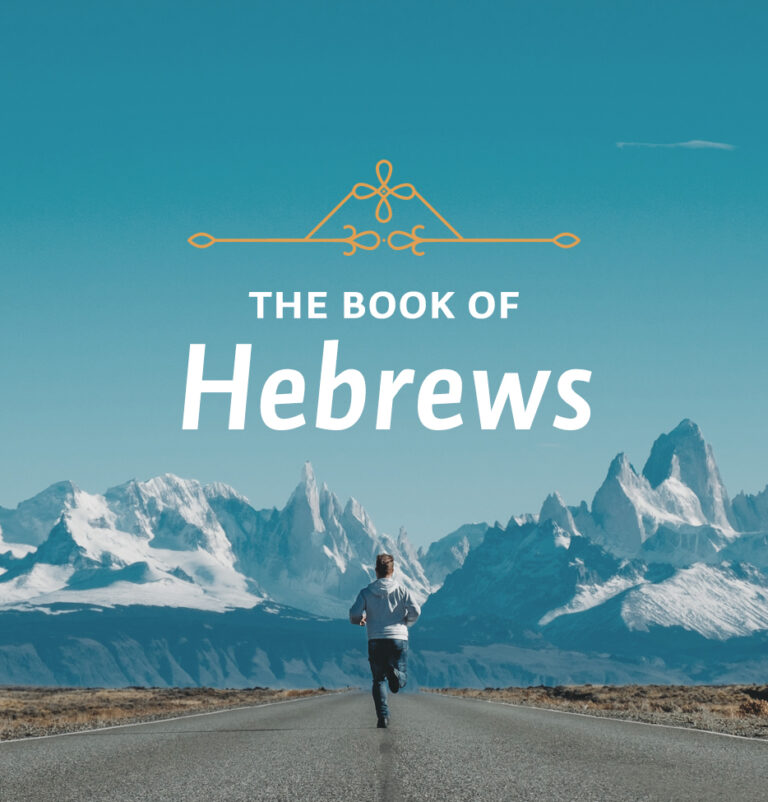
Theme: A Shoot from the Stump of Jesse
In this week’s Christmas lessons, we look at five Old Testament prophecies and see what details they reveal about the Messiah’s birth.
Scripture: Hebrews 10:7

Theme: A Child Born, A Son Given
In this week’s Christmas lessons, we look at five Old Testament prophecies and see what details they reveal about the Messiah’s birth.
Scripture: Hebrews 10:7

Theme: The Virgin Will Conceive
In this week’s Christmas lessons, we look at five Old Testament prophecies and see what details they reveal about the Messiah’s birth.
Scripture: Hebrews 10:7

Theme: Out of Bethlehem
In this week’s Christmas lessons, we look at five Old Testament prophecies and see what details they reveal about the Messiah’s birth.
Scripture: Hebrews 10:7

Theme: When the Messiah Will Be Born
In this week’s Christmas lessons, we look at five Old Testament prophecies and see what details they reveal about the Messiah’s birth.
Scripture: Hebrews 10:7

Theme: What the First Christmas Was Not
From this week’s Christmas lessons, we look at how God’s promises were fulfilled at the first Christmas, and what everyone must do in response to them.
Scripture: Luke 2:6, 7

Theme: The Fulfillment of God’s Promises to Joseph and Mary
From these Christmas lessons, we look at how God’s promises were fulfilled at the first Christmas, and what everyone must do in response to them.
Scripture: Luke 2:6, 7
Well, then, what was the first Christmas if not a time of laughter and family fun and decorations? Do you know what it was? It was the fulfillment of a promise. It was the fulfillment of God’s promise to send his Son, a Savior, to the world.

Theme: The Birth of Israel’s King
We see the birth of Jesus through the eyes of Joseph, the innkeeper, the shepherd, Mary, and the angels.
Scripture: Luke 2:1-20
The first twenty verses of Luke 2 are the longest scriptural account of the birth of Jesus Christ, but twenty verses are not many and at first glance we might wonder why a story of such historical and spiritual importance is told in so brief a space.

Theme: The Fulfillment of God’s Promises to Israel and Beyond
From these Christmas lessons, we look at how God’s promises were fulfilled at the first Christmas, and what everyone must do in response to them.
Scripture: Luke 2:6, 7

Theme: The Promise Accepted and Believed
From these Christmas lessons, we look at how God’s promises were fulfilled at the first Christmas, and what everyone must do in response to them.
Scripture: Luke 2:6, 7

Theme: Have You Responded?
From these Christmas lessons, we look at how God’s promises were fulfilled at the first Christmas, and what everyone must do in response to them.
Scripture: Luke 2:6, 7
This brings us to the last of the four categories of those to whom the promises were made, as I presented them. It brings us to the human race at large and particularly to ourselves. The issue is: Have you accepted the fulfillment of God’s promise of a Savior who came to deliver you from your sins? Have you put your trust in him?
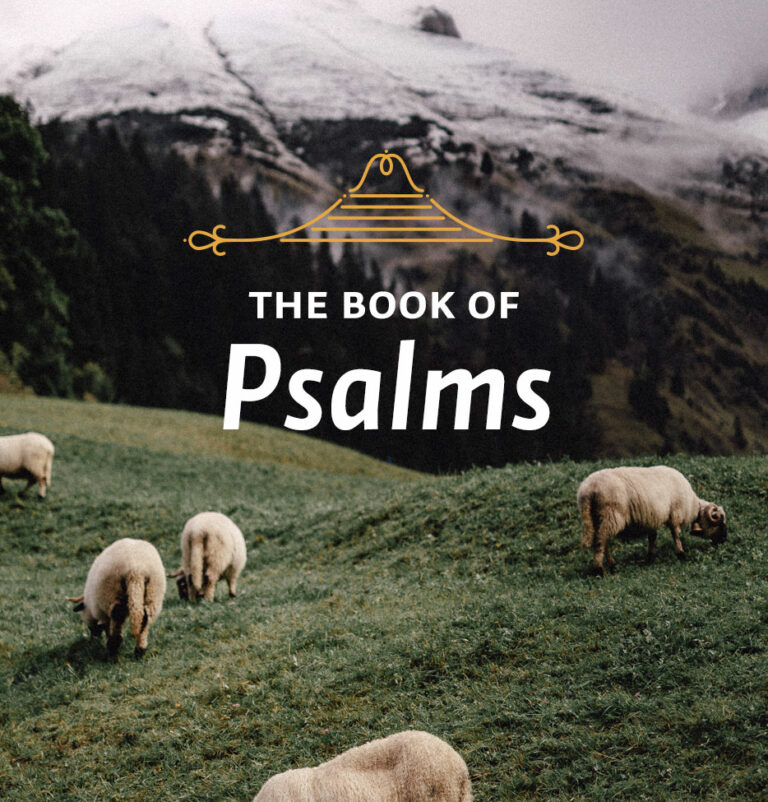
Theme: Questions about Christ’s Birth
In this week’s Christmas lessons, we reflect on the wonder of the coming of the Lord Jesus Christ, and of God’s great love for lost and helpless sinners.
Scripture: Luke 1:26-38

Theme: Why the God-Man?
In this week’s Christmas lessons, we reflect on the wonder of the coming of the Lord Jesus Christ, and of God’s great love for lost and helpless sinners.
Scripture: Luke 1:26-38
The great medieval theologian, Anselm of Canterbury, wrestled with this idea of the necessity of God becoming man. In fact, it is the title of his well-known book, Cur Deus Homo (Latin for “Why the God-Man?”).

Theme: Our Need for Redemption
In this week’s Christmas lessons, we reflect on the wonder of the coming of the Lord Jesus Christ, and of God’s great love for lost and helpless sinners.
Scripture: Luke 1:26-38

Theme: Why Did God Do It?
In this week’s Christmas lessons, we reflect on the wonder of the coming of the Lord Jesus Christ, and of God’s great love for lost and helpless sinners.
Scripture: Luke 1:26-38

Theme: A Startling Idea
From this week’s Christmas study, we look carefully at the incarnation of the Lord Jesus Christ, and how it fulfills the Old Testament tabernacle.
Scripture: John 1:14

Theme: The Tabernacling of God
From this week’s Christmas study, we look carefully at the incarnation of the Lord Jesus Christ, and how it fulfills the Old Testament tabernacle.
Scripture: John 1:14

Theme: Jesus and the Law
From this week’s Christmas study, we look carefully at the incarnation of the Lord Jesus Christ, and how it fulfills the Old Testament tabernacle.
Scripture: John 1:14

Theme: Revelation and Sacrifice
From this week’s Christmas study, we look carefully at the incarnation of the Lord Jesus Christ, and how it fulfills the Old Testament tabernacle.
Scripture: John 1:14

Theme: Questions about Christ’s Life
In this week’s Christmas lessons, we reflect on the wonder of the coming of the Lord Jesus Christ, and of God’s great love for lost and helpless sinners.
Scripture: Luke 1:26-38

Theme: God Gives the Promise
This week’s lessons teach us that God’s plans cannot be thwarted.
Scripture: Genesis 3:15
Our focus this week is on Christmas, and I want to begin by saying that if the birth of Christ is the center of the Word of God, together with his death and resurrection, then we should expect to find it everywhere throughout the Bible.

Theme: A Gracious Prophecy
This week’s lessons teach us that God’s plans cannot be thwarted.
Scripture: Genesis 3:15

Theme: The Raging Battle
This week’s lessons teach us that God’s plans cannot be thwarted.
Scripture: Genesis 3:15

Theme: Salvation through the Cross
This week’s lessons teach us that God’s plans cannot be thwarted.
Scripture: Genesis 3:15

Theme: Delivered from Satan’s Power
This week’s lessons teach us that God’s plans cannot be thwarted.
Scripture: Genesis 3:15

Theme: Glory and Worship
From this week’s Christmas study, we look carefully at the incarnation of the Lord Jesus Christ, and how it fulfills the Old Testament tabernacle.
Scripture: John 1:14

Theme: Resurrection in the Old Testament
In this week’s lessons, we look at the amazing trust that Job had in his coming Redeemer.
Scripture: Job 19:25-27
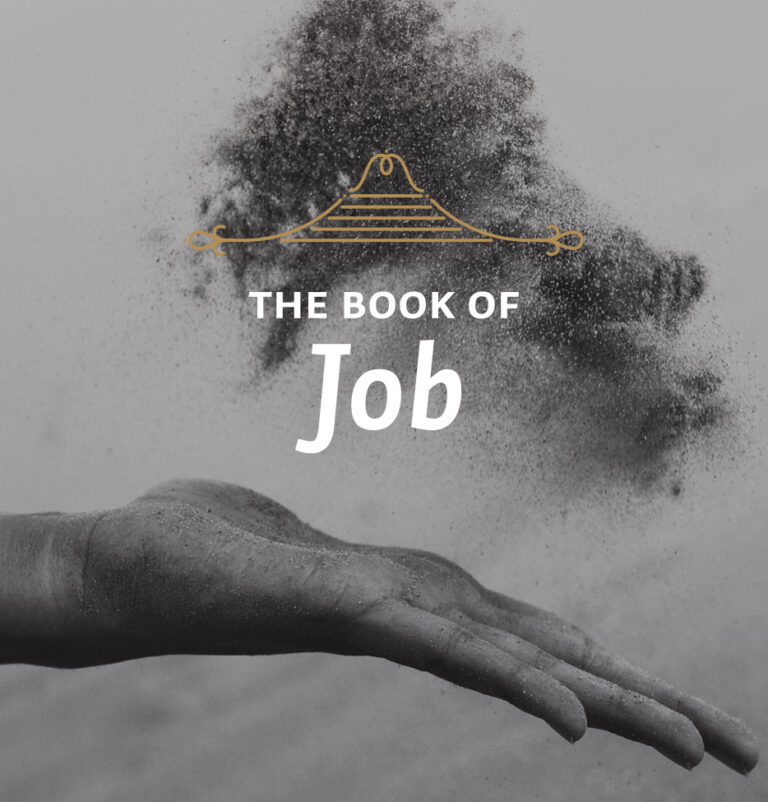
Theme: Job’s Faith in His Redeemer
In this week’s lessons, we look at the amazing trust that Job had in his coming Redeemer.
Scripture: Job 19:25-27

Theme: The Redeemer’s Appearing in the Flesh
In this week’s lessons, we look at the amazing trust that Job had in his coming Redeemer.
Scripture: Job 19:25-27

Theme: Job’s Belief in His Own Bodily Resurrection
In this week’s lessons, we look at the amazing trust that Job had in his coming Redeemer.
Scripture: Job 19:25-27

Theme: Hope and Praise
In this week’s lessons, we look at the amazing trust that Job had in his coming Redeemer.
Scripture: Job 19:25-27
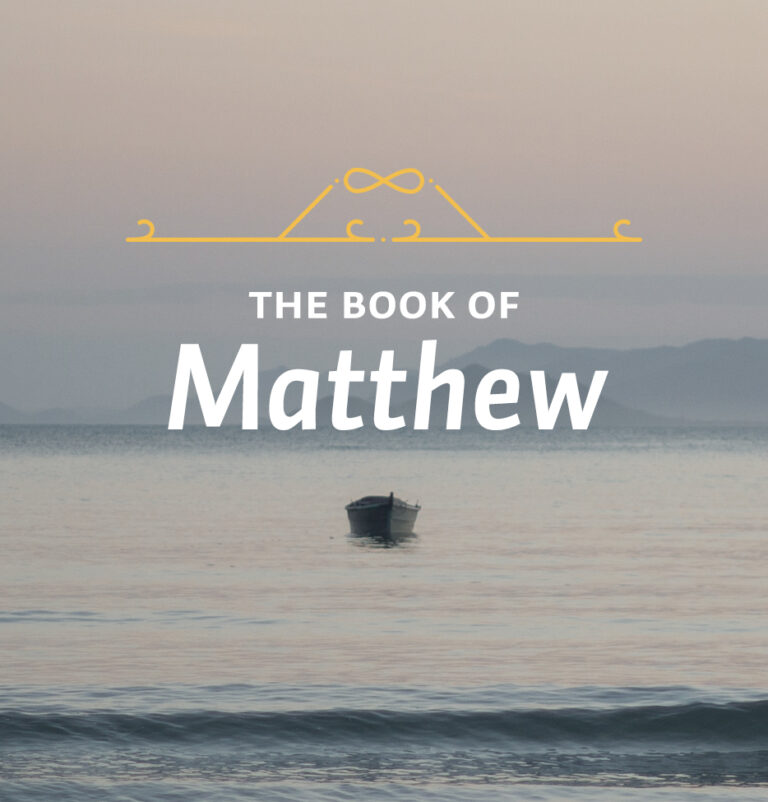
Theme: Three Great Gifts
In this week’s lessons, we look at the three gifts brought to Jesus by the wise men.
Scripture: Matthew 2:1-2

Theme: Royalty and Holiness
In this week’s lessons, we look at the three gifts brought to Jesus by the wise men.
Scripture: Matthew 2:1-2

Theme: A Symbol of Death
In this week’s lessons, we look at the three gifts brought to Jesus by the wise men.
Scripture: Matthew 2:1-2

Theme: Salvation Achieved
In this week’s lessons, we look at the three gifts brought to Jesus by the wise men.
Scripture: Matthew 2:1-2
We looked at the spiritual significance of each of the three gifts given to Jesus by the wise men: gold, frankincense, and myrrh—gold for royalty, frankincense for the purity of his life, and myrrh for suffering. And yet the study would be incomplete unless I were also to take you to one other verse that bears upon the gifts of the wise men.

Theme: Coming to Christ
In this week’s lessons, we look at the three gifts brought to Jesus by the wise men.
Scripture: Matthew 2:1-2

Theme: Last Words
In this week’s lessons, we focus on the wise men’s route back home, and look at what that means for us today.
Scripture: Matthew 2:12

Theme: What the Wise Men Learned
In this week’s lessons, we focus on the wise men’s route back home, and look at what that means for us today.
Scripture: Matthew 2:12

Theme: Where Help Alone Is Found
In this week’s lessons, we focus on the wise men’s route back home, and look at what that means for us today.
Scripture: Matthew 2:12

Theme: The Narrow Way
In this week’s lessons, we focus on the wise men’s route back home, and look at what that means for us today.
Scripture: Matthew 2:12

Theme: Jesus the Only Way
In this week’s lessons, we focus on the wise men’s route back home, and look at what that means for us today.
Scripture: Matthew 2:12

Theme: Missing the Birth of the Savior
In this week’s lessons, we examine people in the Christmas story who did not respond to the birth of Christ as they should have.
Scripture: Luke 2:1-7

Theme: Guarding Against Distraction
In this week’s lessons, we examine people in the Christmas story who did not respond to the birth of Christ as they should have.
Scripture: Luke 2:1-7
Yesterday, we concluded our study by saying that even though the birth of Christ happened so near to the innkeeper, he nevertheless missed it, apparently being too concerned about running his inn.

Theme: The Error of King and Cleric
In this week’s lessons, we examine people in the Christmas story who did not respond to the birth of Christ as they should have.
Scripture: Luke 2:1-7

Theme: The Need for Both Knowledge and Love
In this week’s lessons, we examine people in the Christmas story who did not respond to the birth of Christ as they should have.
Scripture: Luke 2:1-7
We concluded yesterday’s study with the observation that perhaps the religious leaders missed the birth of Christ because of their pride in being summoned by Herod to answer his theological question.

Theme: Those Who Find Christmas
In this week’s lessons, we examine people in the Christmas story who did not respond to the birth of Christ as they should have.
Scripture: Luke 2:1-7

Theme: Finding Christ at Christmas
In this week’s lessons, we look at those in the Christmas story who found Christ and worshipped him in truth.
Scripture: Luke 2:8-20

Theme: Contrasting Circumstances
In this week’s lessons, we look at those in the Christmas story who found Christ and worshipped him in truth.
Scripture: Luke 2:8-20

Theme: Differences, Yet Similarities
In this week’s lessons, we look at those in the Christmas story who found Christ and worshipped him in truth.
Scripture: Luke 2:8-20

Theme: Obeying the Summons and Finding the Savior
In this week’s lessons, we look at those in the Christmas story who found Christ and worshipped him in truth.
Scripture: Luke 2:8-20

Theme: Worship That Cannot Be Contained
In this week’s lessons, we look at those in the Christmas story who found Christ and worshipped him in truth.
Scripture: Luke 2:8-20
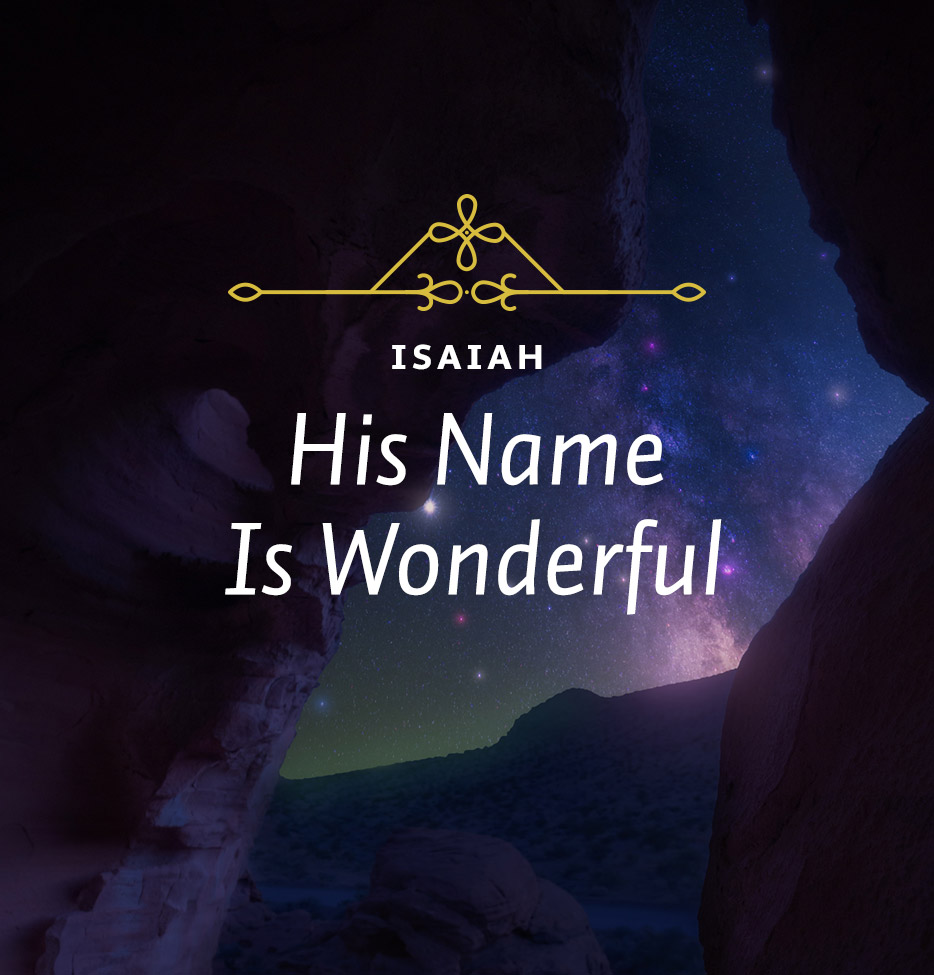
It is appropriate at Christmastime to think together about this wonderful person Jesus, and consider why He was given this name that, so far as we know, is given to absolutely no other man or woman. I want to mention a number of things.

We talk about our Lord’s conception and we say, yes, His name is Wonderful, for our Lord’s divine nature is wonderful. Jesus was a true man; we confess that and we confess it gladly because He became like us in His humanity. He identified with us in all of the sufferings that we know. The Bible says He became like us in every respect, except in the fact that we are sinners and He was sinless.

Jesus’ teaching was truly unparalleled. On one occasion, the chief priests and Pharisees sent the temple guards out to arrest Him, and they came back a while later not having done it. When the religious leaders heard this, they asked, “Why didn’t you bring him in?” The guards replied, “No one ever spoke the way this man does” (John 7:45-46). Can you imagine a policeman refusing to arrest someone whom he was sent to arrest because the man spoke wonderfully? Yet, that’s what happened in the case of Jesus Christ. So wonderful were His words, so wonderful was His teaching, that His enemies were unable to effect His arrest until He Himself brought about His own arrest in order to line things up for His own crucifixion.

Seventh, the Lord Jesus Christ is wonderful in His death for others. First of all, it was a voluntary death. He didn’t need to die. At His arrest, when one of the twelve disciples drew a sword and cut off the ear of the servant of the high priest, Jesus rebuked the disciple and said that if He wished, He could call forth legions of angels. God would send them to His aid to defend Him. We read in the Bible that death is the penalty for sin. Jesus was sinless, and therefore didn’t need to die. Yet He did die, nevertheless, for the sins of others. He did it voluntarily and He spoke about it on numerous occasions.

I commend this wonderful Jesus to you, and I ask, are you His follower? Do you know Him? Is he your Savior? If not, don’t let Christmas go by without making what is the greatest decision anyone can possibly make in this life, the decision to follow Him faithfully as your Savior and your Lord. And if you are a Christian, rejoice over the wonderful Savior you have. Moreover, don’t merely rejoice privately, although we all need to do that. But go out and tell the world that the wonderful Savior, indeed, has come!

There are many wonderful texts in the Old Testament that prophesy the coming of Jesus Christ. But one of the most remarkable of all is Isaiah 9:6. It’s part of Handel’s Messiah, so we have heard it sung and no doubt we’ve recited it. We have heard it read many times at Christmas: “For to us a child is born, to us a son is given, and the government will be on his shoulders. And he will be called Wonderful Counselor, Mighty God, Everlasting Father, Prince of Peace.”

When you begin to ask even the simplest of questions about your own identity, you’ll soon find yourself plunged into a realm that goes far beyond anything you and I could answer by ourselves. Where are we going to find a counselor who can help us with those questions? Isaiah says that there was to be a child born who will give us counsel. Moreover, this Messiah is God come in human form.

Jesus said the Holy Spirit would be our Counselor and be with us. And John writes that Jesus is also our Counselor as He reigns in heaven. I should point out here that this word parakletos, one who is called alongside another to help, is the Greek equivalent of the Latin word from which we get our word “advocate.” Jesus comes alongside as our advocate, as a lawyer does when he represents his client. Both the Son of God in heaven and the Holy Spirit present here in us on earth act as our divine Counselors, always acting wonderfully toward us.

Someone might conclude that all of this is interesting, but ask how it is that this term “Everlasting Father” is used of Christ. After all, Jesus is the Son, not the Father. What is Isaiah talking about when He speaks of the coming Messiah as the “Everlasting Father”? By using this name of the child who will be born, Isaiah is identifying this child with Almighty God. We need to remember that toward the end of Jesus’ ministry Philip asked Him to show the disciples the Father. And Jesus’ response was, “Don’t you know me, Philip, even after I have been among you such a long time? Anyone who has seen me has seen the Father” (John 14:8-9). Jesus was affirming the unity of His divine nature with the Father.

And then finally there is the title Prince of Peace. That title more than any other is associated with Christmas because it’s what the angels were talking about. They said “Glory to God in the highest, and on earth peace to men on whom his favor rests.” You and I need wisdom. We need power. We need this kind of all-embracing home. And we also need peace, because in ourselves we are not at peace. James describes the wicked—which is what we are apart from the work of Christ—as a troubled sea that has no rest. Somebody has said that the chief problem with the human race is that human beings don’t know how to sit in their room and be still. We’re always up to something. We’re always restless. We’re churning around inside. We just cannot sit quietly and contemplate God and be content. Jesus is the One who comes to bring peace because He Himself embodies peace, and give His peace to us.
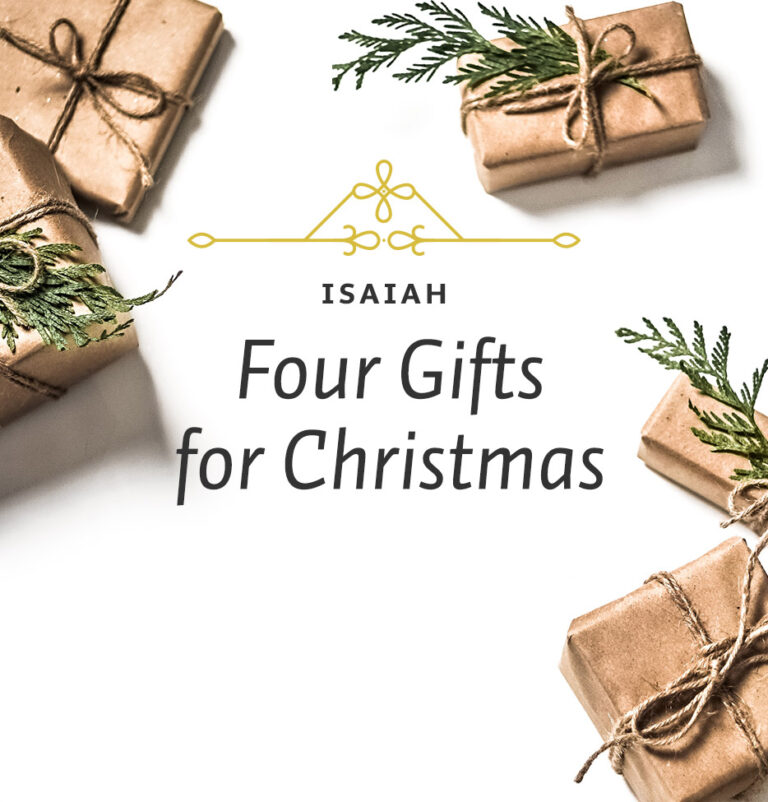
What happens when a baby is born? Well, if you’re close to the family, you often bring a gift. Here’s a case where the child Himself brings gifts because, by virtue of who He is and what He should do, He brought gifts to men. What’s very striking about these gifts is that they match our needs, which is what I hope to show as we look at them one at a time.

When Jesus came to be a wonderful counselor and then by the resurrection and ascension return to heaven, He did not leave us without wisdom. Rather, He continues to provide the wisdom we need. James talks about it. He says, “Do any of you lack wisdom?” Any of us who have any wisdom at all at that point say, “Indeed we do! We lack it a great deal.” And then he says “If any of you lack wisdom, let him ask of God, who upbraideth not but giveth to all men liberally (or generously), and it will be given him.” And he goes on in that same chapter to say, “Every good gift comes from God.” If you value wisdom, ask God for it, and He will give it to you. It comes through Jesus Christ, our Wonderful Counselor.

In a sinful and increasingly unrighteous world, we may feel that we lack power. It can seem as if the evil all around us is winning. But before Jesus’ ascension, He told his disciples, “But ye shall receive power, after that the Holy Ghost is come upon you: and ye shall be witnesses unto me both in Jerusalem, and in all Judaea, and in Samaria, and unto the uttermost parts of the earth” (Acts 1:8). And with that message and that assurance they literally went out and transformed the world.

One of the great privileges that comes from being made a member of God’s family is prayer, because now we can come to God not as aliens but as sons and daughters. Because of this, we’re encouraged to come to God in prayer, knowing that our Father knows all about us and loves us and cares for us and encourages us to come. Furthermore, He promises to answer our prayers that are pleasing to Him. The Holy Spirit helps us in our prayers by interceding for us before God, even when we do not know what we should pray for, or how.

Sermon: Four Gifts for Christmas
Scripture: Isaiah 9:6
In this week’s lessons, we look further at the four names of Christ seen in Isaiah’s prophecy concerning the child to be born.
Theme: The Gift of Peace
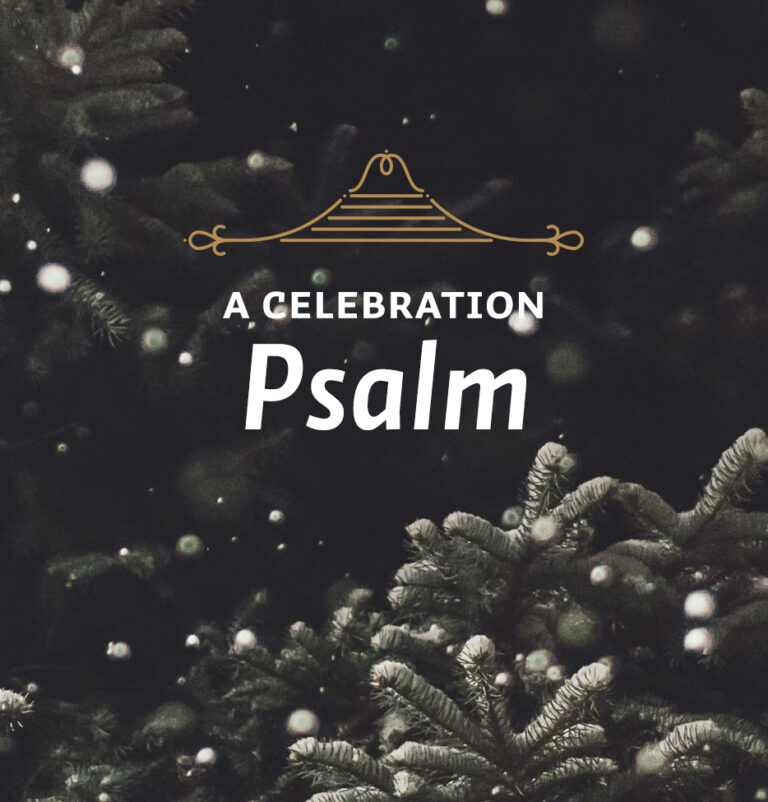
In this week’s lessons, as we prepare for Christmas, I want to look at one of the greatest of the Christmas carols—not the carol itself, of course, since it is only a human composition, but at the text from which it is drawn. “Joy to the World,” by Isaac Watts, is one of my favorite carols, and it would probably be among the most favored carols on any list that might be drawn up by English-speaking Christians.

What kind of deliverance can we celebrate because of the victories God has provided through the death of Jesus Christ? The New Testament speaks of three kinds of deliverance.

The second stanza of Psalm 98 praises God as King. The first stanza praised God as Savior and called on the people of Israel to sing a new song to Him. This stanza views Him as king not only of Israel, but of all people everywhere. Therefore, it broadens its call to worship to engage the whole world in singing God’s praise.

The final stanza of Psalm 98 calls on the entire creation to praise God. In the first stanza the appeal was to Israel. In the second stanza the Gentiles were called to join in. In this last stanza the psalmist calls on what we would call the cosmos. And the reason is that God is coming to “judge the world in righteousness and the peoples with equity” (v. 9). In other words, the psalm ends by looking ahead to that future day when the ills of this suffering world will be set right. We know this as the day of the return of Jesus Christ.

As we noted in yesterday’s lesson, the final stanza of Psalm 98 calls on the entire creation to praise God. The Bible’s teaching about nature is threefold. First, this is God’s world. Second, the world is not now what it was created to be. Third, one day this fallen suffering world will be renewed.
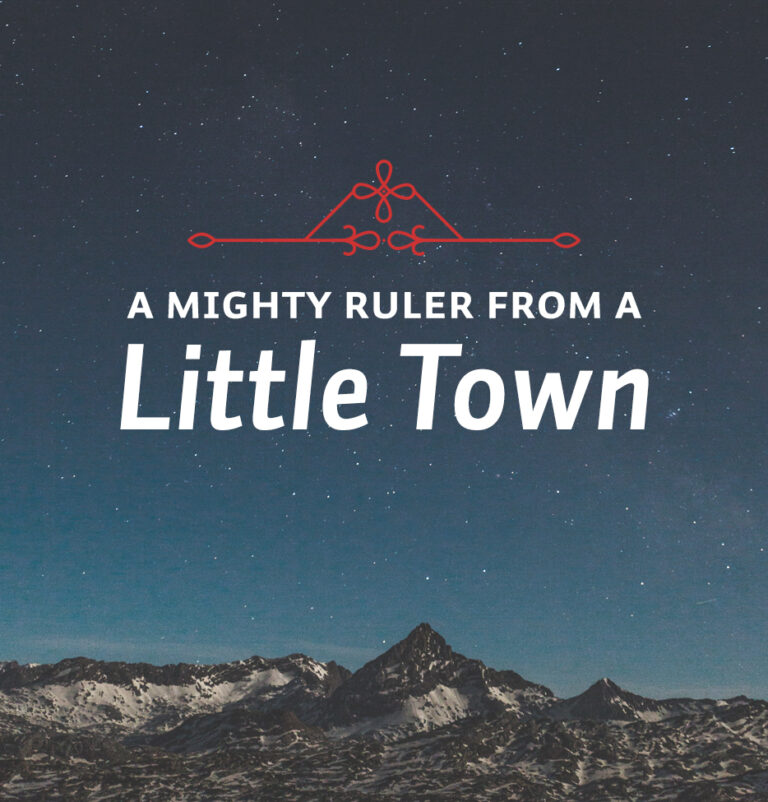
When the Wise Men came to Jerusalem in those early months following the birth of Jesus Christ, they asked to see the new king. Those who heard the Magi’s questions were disturbed—particularly King Herod. It was because Judea already had a king, and Herod was that king. Herod was a crafty old politician. He did not know who this king was, but that did not mean that no king existed. He set about to find where the “pretender” was so he might kill him. Who would know about his birth place? If anybody would know, it would be the chief priests and teachers of the law. So Herod called them together and asked where the child was to be born.

Bethlehem was a small town among the many towns of Judah, but with a great history. And yet the history of Bethlehem was to become even greater, for it was out of Bethlehem that He who was to be a divine and everlasting ruler over Israel would come.

The birth of Jesus at Bethlehem shows us many things about God, but chief among them is God’s eternal, predestinating power. God’s choice was Bethlehem, and in Bethlehem Jesus was born.

When the Wise Men came to Jerusalem inquiring after the new ruler and were directed to Bethlehem on the basis of Micah’s prophecy, they asked for “the one who has been born king of the Jews” (Matt. 2:2). That is, they were asking for one who was a king from the very moment of His birth.

At this point, the prophecy of a ruler given to the Wise Men becomes quite personal. For the issue is not merely whether the one born in this small Judean town so long ago really was a great ruler, but whether He is your ruler. The question is, Are you his subject? Have you bowed your knee to him?
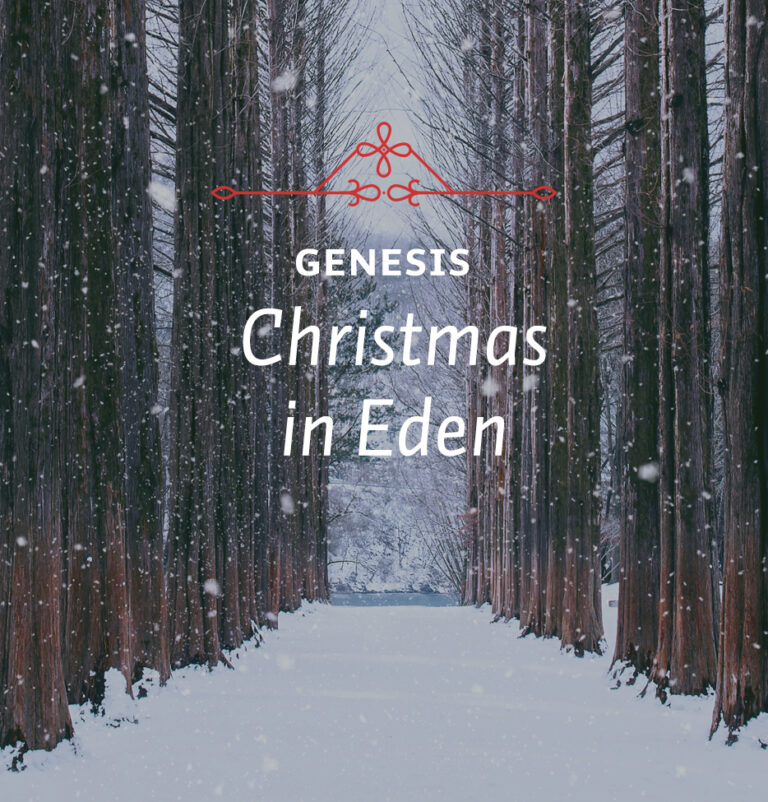
Our focus this week is on Christmas, and I want to begin by saying that if the birth of Christ is the center of the Word of God, together with his death and resurrection, then we should expect to find it everywhere throughout the Bible.

It is not surprising that we find a prophecy of Jesus in the Old Testament. But what is surprising is how gracious this is. Here is God speaking in grace in the context of the judgment, and I want you to remember that about Christmas. Christmas is God’s grace to people who deserve his judgment. Now what this verse speaks of is enmity. And it speaks of this enmity, or warfare, on three levels—between Satan and the woman, and presumably all human beings; between his offspring and hers; and then, finally, a conflict between the woman’s great descendant Jesus Christ and Satan himself.

What God has said here in Genesis 3 is that he is giving a divinely established struggle between the woman and her descendants and Satan. We are terribly depraved, but we don’t automatically assume that Satan is right. That is a blessing that results from the warfare that goes on. We have a fallen spirit within, and that is why we are in dreadful danger all the time of being drawn after Satan—because that within us inclines in his direction. But, you see, it isn’t wholehearted, and there is a struggle involved even when we sin as sinners.

This struggle between Satan and God’s beloved Son is evident throughout the life of Jesus. Probably the devil worked upon Joseph at the very beginning to suggest to him that Mary was pregnant by another man, and that he should therefore expose her. However, we are told that Joseph planned instead to put her away privately, but nevertheless to turn away rather than provide the protection that God put Joseph into the story to do. It required an angel to come to Joseph. God intervened so Joseph would take Mary under his wing and protect her from the kind of things that would be said and done if she were exposed in that manner.

To save us all from Satan’s power when we were gone astray—that is why Jesus came. Make sure that you also trust in Jesus, as Adam and Eve did. You will find that this great purpose of all the ages, focused in Jesus Christ, is also accomplished in you. If you trust him, if you believe in him, if you place your faith in him, it is for you that he came on that first Christmas Day.
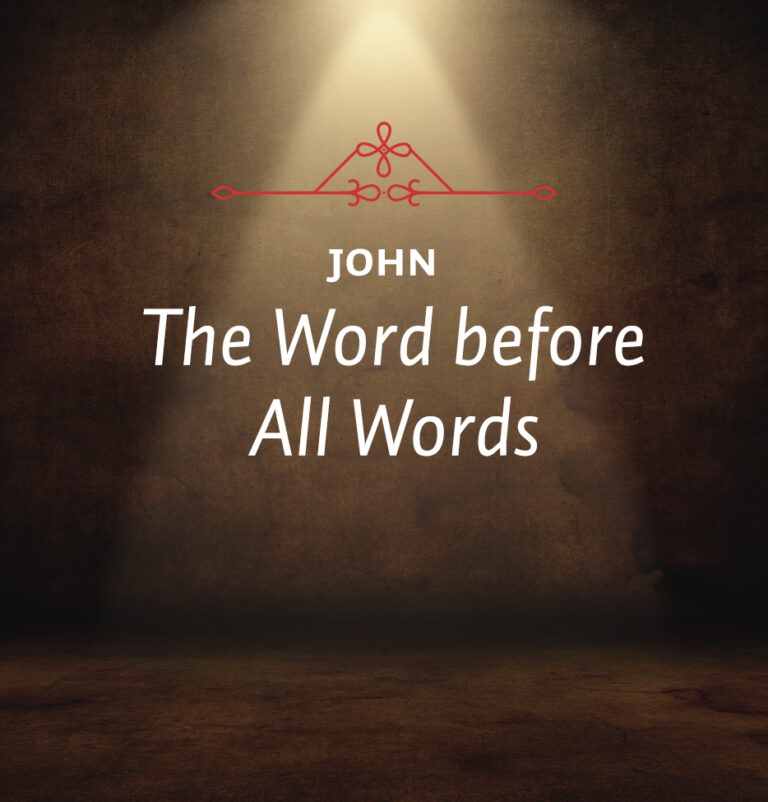
Each year in the weeks or months before Christmas I look over the list of what I have preached about on previous Christmases to see if there are any significant texts I have overlooked and to pick a new set of topics. And when I did that this year I made an interesting discovery. I discovered that in all my years of preaching I have never preached a Christmas message from the opening chapter of John’s gospel, the chapter that begins: “In the beginning was the Word” (v. 1).

Yesterday I spoke of how brilliant and amazing the preface to John’s gospel is, but let me add now that this is not only because of John’s use of the philosophical Greek term logos. In the first verse of the prologue John also tells us three important things about him. We’ll look at one of them today, and the other two tomorrow. The second verse summarizes those three things.

Jesus is the Word, and he was with God even before the beginning. But John didn’t stop with this. He goes one to make two very important points.

Silent Night is probably the best known and most deeply loved of all the Christian carols. But the greatest of the carols at least from the point of view of its splendid theology is Charles Wesley’s Hark! The Herald Angels Sing. Do you remember the words of the last verse? They say,
Hail, the Heav’n born Prince of
Peace!
Hail the Sun of Righteousness!
Light and life to all he brings,
Risen with healing in his wings.

I began this week’s study of John’s version of the Christmas story by speaking of Jesus as the Word before all words, and I want to end by adding to that in this way. Jesus is not only the first word, that is, the Word before all words. He is also the last word in the sense that he will have the last word.
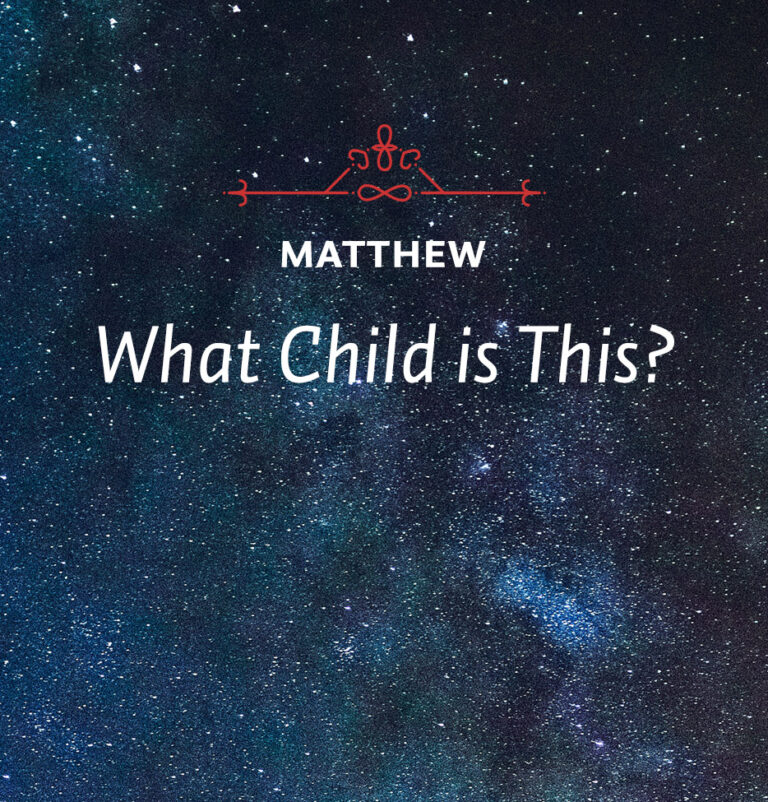
The first chapter of Matthew begins with a genealogy of the Lord Jesus Christ followed immediately by an account of His birth. So with the exception of this genealogy the first words of the entire New Testament are our text: “This is how the birth of Jesus Christ came about. His mother Mary was pledged to be married to Joseph, but before they came together, she was found to be with child through the Holy Spirit” (Matt. 1:18). What a remarkable beginning to the account of Jesus’ life!

The first person we want to interrogate is Gabriel, the angel of God. He appears at least twice in the Christmas story, once to announce the birth of John the Baptist to John’s father, the aged Zechariah, and once to announce the birth of Jesus to Mary.

The second person we wish to question is the angel who appeared to Joseph, as described in the verses immediately following our text. This angel may have been Gabriel, but he is not named. He is only “an angel” who appears to say, “Joseph son of David, do not be afraid to take Mary home as your wife, because what is conceived in her is from the Holy Spirit. She will give birth to a son, and you are to give him the name Jesus, because he will save his people from their sins” (Matt. 1:20-21).

Yesterday’s study concluded with the name given to Joseph for the son that would be born to Mary. It had both a general and specific application, and we mentioned the general meaning then. Today, we continue by describing the specific application.

Only one thing remains: not to seek for further witnesses, but meekly to add our confession to God’s own. Is this child of Christmas God’s Son? Is He God with us? Then let us acknowledge Him as such. Let us worship Him and show by the obedience of our lives that He is indeed who He is so clearly declared to be.

There are several reasons why you or I might be unable to describe a Christmas gift. We might be overcome with emotion so that “words fail us,” as we say. Or we might be unable to identify the gift. We might open it (as my father opened a gift on one occasion) and say, “It’s beautiful, just what I always wanted. Uh—what is it?” Or we might care so little for a gift that we might not even bother to describe it. What can possibly make a gift indescribable? Since all human presents are describable, it is clear that the only thing that can make a gift indescribable is that it is more than human.

Why is the gift of God beyond description? There are several reasons and the first is the nature of the gift itself. The gift is Christ. So, in order fully to describe this gift we must be able fully to describe who Jesus is and what He has done for our salvation, which we cannot do.

It is not only the gift but also the gracious manner in which it is given that exceeds our powers of description. Reason falters, logic fails, oratory stammers when confounded by this mystery.

There is a third reason why the gift of God is indescribable. We have seen that the gift itself is indescribable. We have seen that the grace by which it is given is indescribable. God’s gift is also indescribable for the effects it produces. This is unmeasurable by human beings.

Seventh, we have a home in heaven prepared for us by Christ. Just before His crucifixion Jesus said to His disciples, “Do not let your hearts be troubled. Trust in God; trust also in me. In my Father’s house are many rooms; if it were not so, I would have told you. I am going there to prepare a place for you. And if I go and prepare a place for you, I will come back and take you to be with me that you also may be where I am” (John 14:1-3).

Canadian Committee of The Bible Study Hour
PO Box 24087, RPO Josephine
North Bay, ON, P1B 0C7